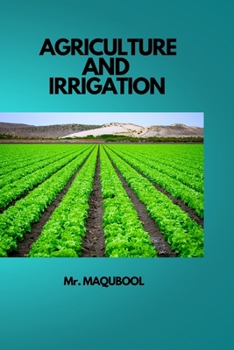Agriculture and Irrigation
Agriculture and irrigation are two interconnected concepts that play a critical role in the global food production system. Agriculture refers to the cultivation of crops and the raising of livestock for human consumption, while irrigation is the process of artificially supplying water to land to aid in agricultural production.
Agriculture has been practiced by humans for thousands of years, and it has evolved significantly over time with the use of modern technology, such as machinery and fertilizers. The main objective of agriculture is to produce enough food to feed the world's population, which has grown exponentially in recent years. Agriculture also plays a significant role in the economies of many countries, providing employment opportunities and contributing to the gross domestic product.
Irrigation is a vital component of modern agriculture, as it provides water to crops in areas where rainfall is insufficient for optimal growth. Irrigation can be done through various methods, such as surface irrigation, drip irrigation, and sprinkler irrigation. Efficient irrigation systems can increase crop yields, reduce water waste, and improve soil fertility.
Mr. Maqbool is a name that is associated with promoting sustainable agriculture and irrigation practices in developing countries. He is a renowned expert in the field of agriculture, having worked on several projects aimed at improving food security and increasing agricultural productivity. He has authored several books and articles on the subject, highlighting the importance of sustainable agricultural practices and innovative irrigation systems.
Overall, agriculture and irrigation are critical components of the global food production system, and sustainable practices in these areas are essential for meeting the increasing demand for food while preserving the environment.





